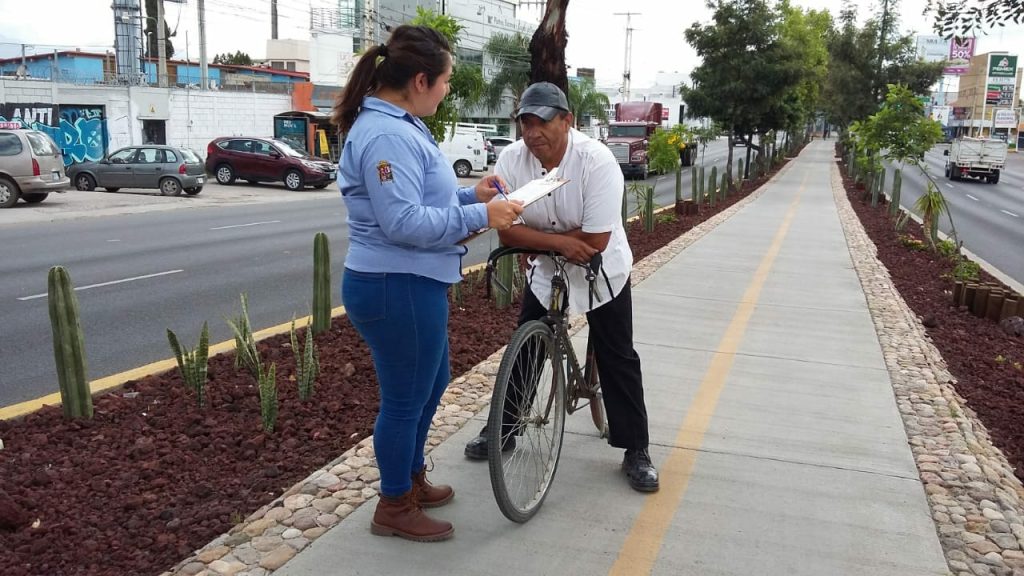
Its a fact that the bicycle helps to enforce a more equal social development and that moreover cycling is a very climate friendly mode of transport. Then let’s ask the question: Which climate do cyclists face every day on our roads? And: How can we make cycling more attractive?
Within the initiative CiClim Cities, cycling for a low-carbon development, five local governments and numerous civil society groups undertook a series of more than 2000 interviews with local cyclists in León, Hermosillo, Mérida, Morelia and Tlaquepaque.
The results of the “Cyclist Profile Diagnosis” show that an active mobility policy aimed at attracting more users to the bike has a great sustainability potential and not only contributes to a more equal social and economic development:
The Cyclist Profile Diagnosis has proven to be a fundamental tool to gather reliable key information on cycling practice in a city. Its results provide a powerful diagnose for local governments as well as for civil society groups who which to impulse action to increase the use of bicycles.
It’s based on a qualitative dimension which allows to get to know from a users’ perspective the motivation to cycle, its frequency of use, principal destinations, difficulties and incentives to continue moving in a sustainable manner.
The tool has been developed under the umbrella of the project “Climate Protection in the Mexican Urban Policy” (CiClim) in cooperation with the Institute for Transport and Development Policy (ITDP) and the Cyclecities initiative.
Consult the full article with further information on the Blog of the IKI Alliance Mexico: http://iki-alliance.mx/en/mexican-cities-bike-cycling-low-carbon-development/
The project CiClim is implemented by the Deutsche Gesellschaft für Internationale Zusammenarbeit (GIZ) GmbH and forms part of the International Climate Initiative (IKI) of the Federal Ministry for the Environment, Natural Conservation and Nuclear Safety (BMU).

Mathias Merforth